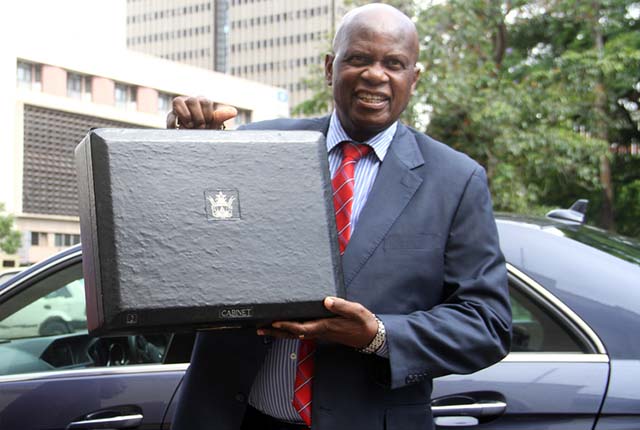EDITORIAL COMMENT : Vibrant industry will grow economy

Government’s focus on raising production levels in the country is the only sure way the economy can grow. In this regard, we fully support the thrust of Finance and Economic Development Minister Patrick Chinamasa’s 2017 National Budget.
Increasing production has a number of positives to the economy which include improving food security, reducing imports particularly of locally available products, halting export of jobs and saves the country of much needed foreign currency.
A strong production base is the foundation on which growth can be recorded.
As such, Government’s efforts in reforming the doing of business environment, focus on fundamentals that affect production in all sectors of the domestic economy and safeguarding the productive sectors from cheap imports are commendable.
In coming up with the measures to improve productivity, Government looked at the different economic sectors’ value chains and set favourable policies to ensure growth. Minister Chinamasa said a firm foundation for this had been built.
On guaranteeing availability of primary goods, which also constitute inputs to the manufacturing sector, Government introduced Command Agriculture last year, which is targeting two million tonnes of grain this season.
This means that there will be minimal maize imports from this season and therefore Government will make a huge saving on grain imports.
For a while Zimbabwe’s import bill has been draining the country of critical liquidity at a time when exports were falling.
The policy focus now is to ensure the viability of farming whose produce is then processed into various finished products. This means that food security will be guaranteed, which is a key function of Government.
Apart from focus on agricultural production, Government has also come up with policies to boost other sectors such as the mining sector. A new mining sector regime is expected to come into force this year and should boost investment. Under this sector Government has come up with measures that allow for greater flexibility to explore new areas of mineral reserves.
Critically, for the platinum sub-sector, Government extended the suspension of the export tax for another year to allow completion and migration to base metal refinery by December 2017.
For the manufacturing industry, Government has come up with various incentives and policies to give breaks and ring-fence the sector. Chief among the policies is Statutory Instrument 64 of 2016 which restricts importation of products that can be produced locally.
This measure has resulted in capacity utilisation in the manufacturing sector rising by about 13 percent to 47,4 percent in 2016 from 34,3 percent in 2015 with some companies now operating at full capacity, according to a survey by manufacturers’ representative organisation, the Confederation of Zimbabwe Industries.
The CZI has applauded Government for the positive impact the measures have had on the manufacturing sector.
On provincial comparative basis, the survey showed that companies in Harare are operating at 48,3 percent capacity utilisation while those in Bulawayo are at 33,3 percent.
In the Manicaland and Midlands provinces, average capacity utilisation is at 43 percent and 44,3 percent respectively. Without a robust manufacturing base, an economy cannot grow or develop.
The Roosevelt Institute argues that: “Without a robust revival in the manufacturing sector, we can kiss our status as a great economic power goodbye.”
Only recently, Government invited manufacturers to present proposals on fiscal incentives that can be introduced to allow companies more space. It has shown that it is ready to implement those proposals.







Comments